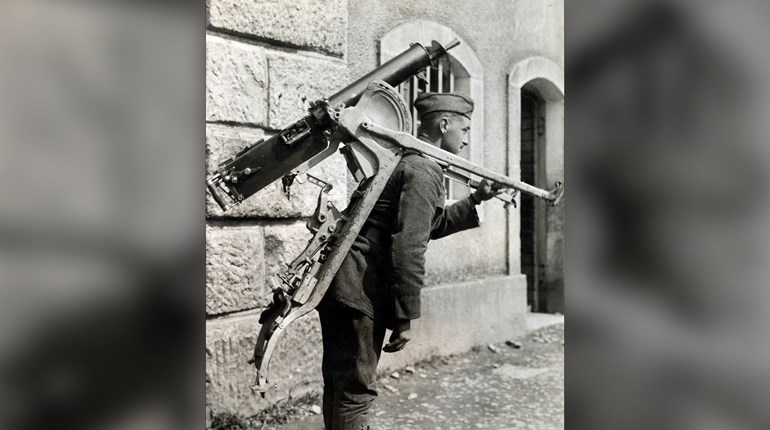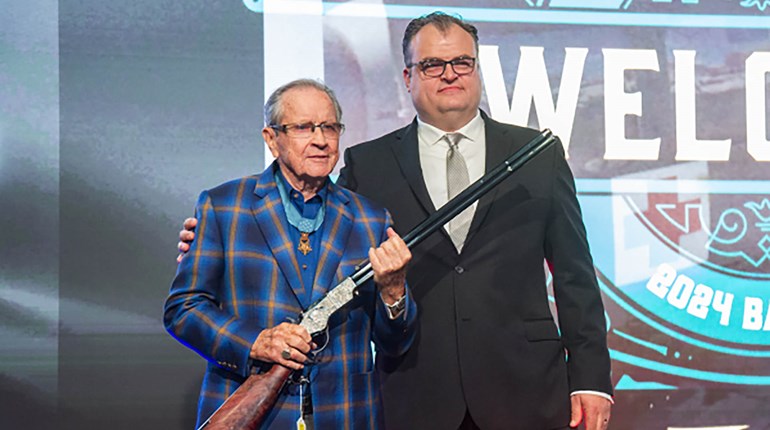
We hope Veterans Day is trending, and particularly in the modern social-media sense, on this day of its observance. America’s veterans—nearly 50 million of them since the American Revolution—surely deserve a more-than-casual recollection.

Most know the origin of the event itself: It’s the American version of Armistice or Remembrance Day, marking the end of World War I. First proclaimed by President Woodrow Wilson in 1919, it became a “federal” holiday in 1938 and was expanded in 1945 to honor veterans of all U.S. conflicts. It is occasionally confused with the older Memorial Day (dating back to at least the Civil War, and observed on the last Monday of each May, rather than a fixed date), when we honor those who died in the service of our nation.
Such hommages can stir conflicting emotions. If you live close to a military installation or have family members who have served (to say nothing of being a veteran yourself), any tumult seems silly: Of course we should honor our veterans. Even casual familiarity with the history of the republic shows their service and sacrifices to have been essential.
But down every avenue of culture and demographics, civilian connections with those stepping up to fill our military ranks are fading. Congress is an obvious example: In 2013, only 20 percent had military service in their resumes; little more than a generation earlier it was more than 70 percent. While nearly one in eight Americans served in World War II, less than one in 20 have served in the Global War on Terror.
Several factors contribute to this, but technology and an all-volunteer force probably isolate our warfighters more than anything else. The first makes our conflicts seem antiseptically precise, even easy. We fear it makes service seem less dangerous, less of a sacrifice, less of, well, almost everything.
Second, the service life is quite obviously “inviting” to an ever-smaller slice of American families. This demographic also appears increasingly inter-generational. Fortunately, whether it is a son or a daughter who takes up a parent’s military calling, the quality of our average soldier, sailor, airman or marine remains very high. Comparatively tiny forces (by, say, Vietnam standards) inflict brutal casualty rates on our enemies, and conquests on a scale that took years in the 1940s take days, or weeks in the modern era. Even casual familiarity with the history of the republic shows their service and sacrifices to have been essential.
A final wedge between citizen and soldier is a media and political artifact, yet fosters a philosophical and psychological gulf of a very real dimension: Ever fewer can make a realistic assessment of what the job costs veterans and their families. It’s understandable that many fellow citizens believe in an absolute right to ramble through their lives as if there was nothing sharp to suddenly, unhappily encounter. That’s a good thing, as far as it goes, and another credit to our veterans.
And as pluralists, we’re willing to let those citizens live in carefree whimsy, though with a reminder: That we have veterans at all demonstrates just how wrongheaded such a notion is if it is allowed to become an ungrateful reflex, or worse, public policy.
We know of no way to close this gap, except by learning. Veterans, we hope, will experience a widening gratitude from those they’ve served and protected. Citizens, we hope, will use the links below or other resources to learn about what’s been done—century in and century out—to protect and defend them, and in turn nurture that sense of gratitude.
The glue between service and gratitude we find in an unsurprising place. First president and (still) our nation’s highest-ranking soldier George Washington gave the only reminder that matters in his 1775 address to the New York Legislature: “When we assumed the Soldier, we did not lay aside the Citizen.” May it always be so.
Thank you, veterans.
The First World War – The genesis of Veterans Day; a war the U.S. entered late but decisively.
WWII P-47 Ace Robert Johnson – Probably the least well-known of the high scoring USAAC aces, Johnson’s story is an engrossing one. A(nother) true citizen soldier.
Revolutionary Spies – Far from the “James Bond” image of espionage in some respects, and not in others; but intrepid, definitely, crucial without doubt.
Washington’s Circle – A new and highly acclaimed biography of Washington, a model for both American soldiering and governmental service we are unwise to forget.
The Barbary Wars – Largely forgotten conflicts from the early days of nationhood, the battles, bravery and diplomatic maneuvering by the young United States set a half-century tone that could not be ignored.
Combat Outpost Keating – Two Medals of Honor, nine Silver Stars, 21 Bronze Stars and 27 Purple Hearts among only 60 U.S. soldiers; yes, it’s worth reading about.
Military Times Valor Awards – We get lost here, now and again. An astonishingly varied, comprehensive and increasingly complete listing of awards for valor and accompanying citations for recognition given to U.S. service men and women.


































